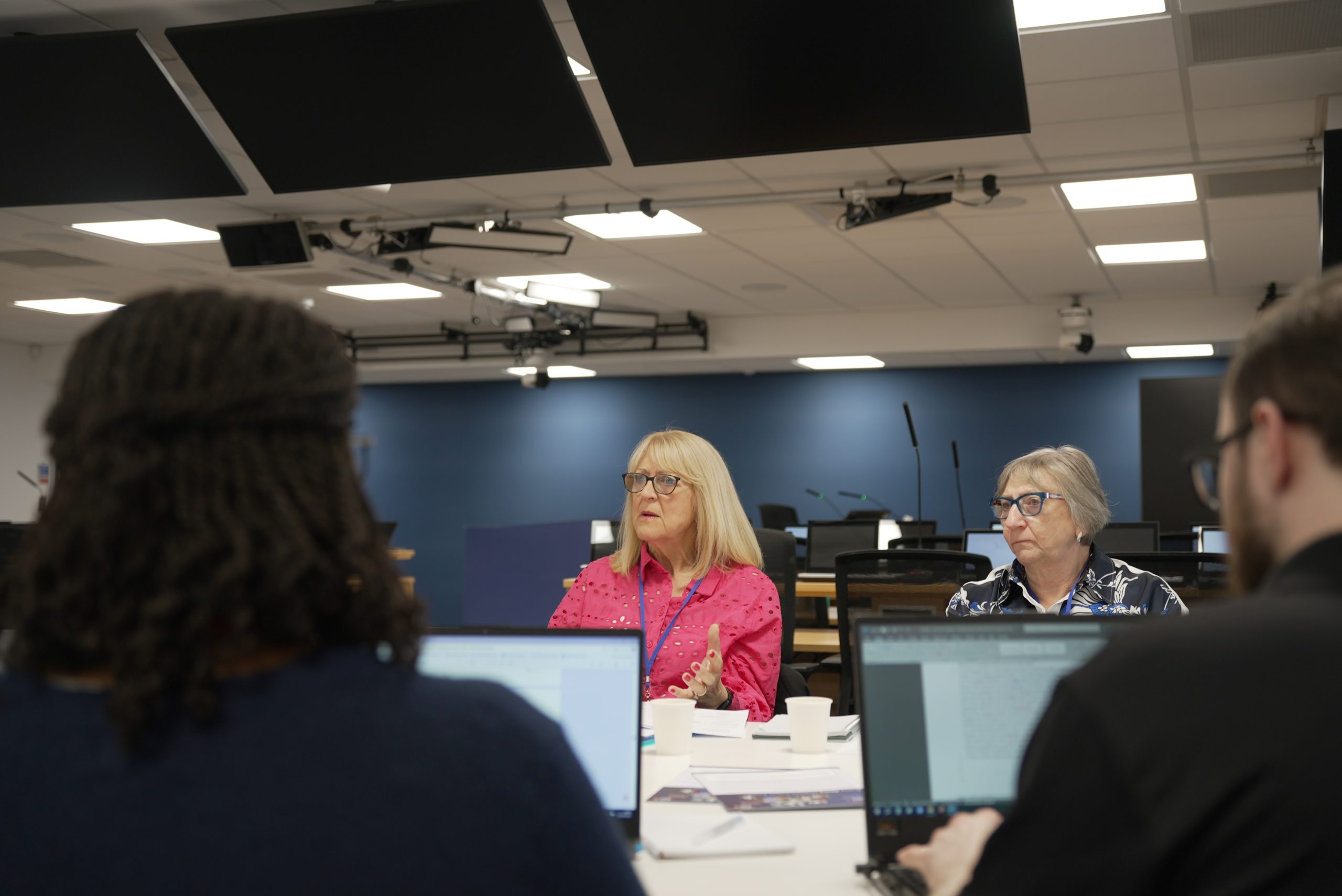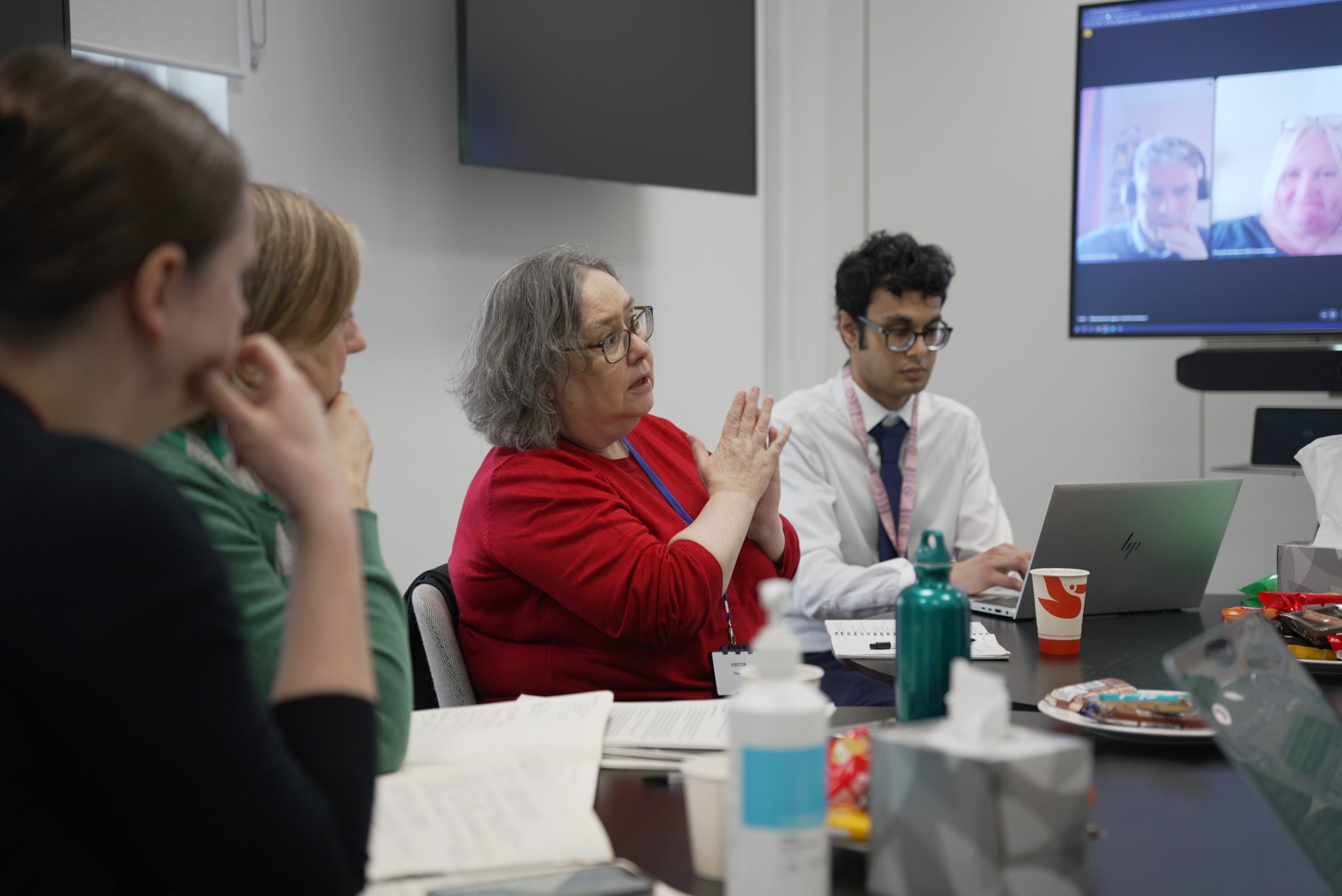2025 年 4 月英国 Covid-19 调查通讯。
下载文件
以网页形式查看此文档
调查秘书本·康纳 (Ben Connah) 致辞
 欢迎阅读四月份的新闻简报。我们正忙于准备我们的公开听证会。 关于测试、追踪和隔离的调查(模块 7),将于5月12日星期一开始。听证会将调查英国四个地区采用的不同检测、追踪和隔离系统,以及它们如何影响数百万人的生活。在听证会的第一天,调查委员会还将发布下一份《每个故事都很重要》记录,详细介绍英国各地民众就此话题与我们分享的经历。
欢迎阅读四月份的新闻简报。我们正忙于准备我们的公开听证会。 关于测试、追踪和隔离的调查(模块 7),将于5月12日星期一开始。听证会将调查英国四个地区采用的不同检测、追踪和隔离系统,以及它们如何影响数百万人的生活。在听证会的第一天,调查委员会还将发布下一份《每个故事都很重要》记录,详细介绍英国各地民众就此话题与我们分享的经历。
作为我们 圆桌讨论 支持 模块10(疫情对社会的影响)我们感谢各机构抽出时间与我们分享疫情对其所代表人群的影响。更多关于模块10的信息将在本通讯的稍后部分发布。圆桌会议上分享的信息将有助于我们主席哈莱特男爵夫人就模块10的调查结果和建议提供参考,以及其他证据,例如证人陈述、专家报告和…… 每个故事都很重要 記錄。
本次调查旨在审视英国应对新冠疫情的举措及其影响,并为未来汲取经验教训。作为这一进程的一部分,哈利特男爵夫人不仅提出建议,还监督相关部门的响应。去年,我们发布了我们的 建议监控流程 列出调查将采取的步骤,以监督英国和地方政府以及主席报告中提到的任何其他公共机构对建议的回应。
我们在二月份的新闻通讯中提到 英国、苏格兰和威尔士政府以及北爱尔兰行政院已公布对 哈莱特男爵夫人的模块 1(准备和恢复力)建议哈利特女男爵已致函各政府,请他们回应。她的信件已发布在我们的网站上:
监测过程也将适用于即将出台的调查建议,例如 模块2(核心决策和政治治理) 该书将于今年晚些时候出版。
感谢您对调查工作的关注,我希望在 5 月份的听证中心第 7 模块听证会上见到你们。
观看我们即将举行的第 7 模块公开听证会
听证会 模块 7(测试、追踪和隔离) 将于 2025 年 5 月 12 日星期一至 5 月 30 日星期五在我们的 伦敦听力中心,Dorland House.
此次听证会将调查:
- 英国及其地方政府在疫情期间采取的检测、追踪和隔离措施。
- 横向流动和 PCR(聚合酶链反应)测试、Covid-19 变体测试和数字接触者追踪等技术的可用性和使用情况,以及这些技术的运行情况。
- 英国四个国家如何建立新冠病毒检测、追踪和隔离系统,包括决策机构、私营部门的参与程度以及这些系统的成本。
- 检测、追踪和隔离规则是如何执行的,什么影响了人们是否遵守规则,公共信息的质量和可信度,为需要隔离的人提供的资金和实际帮助,以及在决策中使用数据。
- 为未来的大流行病做好规划,包括保持检测和追踪系统准备就绪,并研究改进检测和隔离方法。
与我们所有的公开听证会一样,我们设有座位预订系统。更多信息可参见 指导文件 和 我们网站的公开听证会页面。预约表格将于每周一中午 12 点上线,用于预约下一周的听证会。
听证会将在 Inquiry 的 YouTube 频道,可能会有三分钟的延迟。所有直播均可稍后观看。
我们的听证会时间表将于每周四在网站上公布,具体时间另行通知。时间表链接将于5月8日星期四在 模块 7 听证会页面.
模块 10 调查的更新
作为一项调查的一部分,该调查将继续与各组织就疫情对英国人口的影响进行一系列圆桌讨论。 模块 10(对社会的影响)。 迄今为止,已与以下代表举行了四次圆桌讨论:
- 英国的主要宗教团体
- 关键工作人员
- 家庭暴力受害者和幸存者以及提供支持的组织
- 疫情期间失去亲人的人们以及为失去亲人的人提供支持的组织


上图:我们与新冠疫情遇难者家属代表进行圆桌讨论的图片(左图);我们与支持遇难者家属的慈善机构代表进行圆桌讨论的图片(右图)
还将举行五场圆桌讨论会,与会代表来自以下领域:
- 监狱和其他拘留场所以及受司法系统运作影响的人员
- 酒店、零售、旅游和旅游业的商业领袖
- 社区层面的体育和休闲
- 文化机构
- 住房和无家可归。
每次圆桌讨论都将以总结报告的形式撰写,并作为证据纳入模块10的调查。这些报告也将在明年模块10公开听证会期间在调查网站上发布。这些报告以及其他证据将有助于主席的调查结果和建议。
您可以在以下位置阅读更多有关我们在模块 10 圆桌会议中取得的进展的信息 我们网站上的新闻报道.
调查专家的最新进展
调查已指示我们各领域的 54 位顶尖专家 10个模块 向调查委员会提供独立证据。这些证据可以是书面报告,也可以是在听证会期间提供口头证据。专家在帮助调查委员会保持公正性和开展彻底调查方面发挥着重要作用。
为了支持我们的 调查疫情对社会的影响(模块10) 我们最近委托了多名专家撰写了一份报告,研究疫情影响的差异,其中包括:
- 对老年和晚年生活的影响
- LGBTQ+ 群体成员
- 种族和民族
- 性别不平等
- 残疾和临床脆弱性
- 疫情对不同群体的影响不均等,以及为何这些影响在整个人口中分布不均
另一份报告将考虑疫情对患有严重精神疾病的人的影响。
迄今为止已作为证据的所有调查专家报告 可以从我们的网站下载.
每个故事都很重要在线表格即将关闭,但您仍有时间分享您的故事
我们的“每个故事都很重要”倾听活动将于5月23日星期五结束,我们想听听你的疫情故事。通过“每个故事都很重要”的互动活动,我们一直在倾听英国各行各业的人们讲述疫情如何影响他们的生活。
人们通过我们的在线表格、邮寄或参加我们的活动分享了他们的故事。 过去18个月,英国各地都开展了调查。这是英国公开调查中规模最大的一次参与活动。
“每个故事都重要”活动将于5月23日星期五截止提交。如果您想分享自己的故事,但尚未分享, 你可以在线完成 或通过以下方式索取纸质表格: 联系调查.
如果您在讲述您的故事期间或之后需要与某人交谈,您可以访问调查的支持服务, 详情可在我们的网站上查阅.
与调查分享的每一个故事都有助于我们了解疫情如何影响 英国各地不同的人群和社区。这些故事被放在一起审视,因此我们 能够识别人们经历中的共同点,以及差异。所有 故事有助于 每个故事都很重要,协助哈莱特男爵夫人和法律团队进行调查。